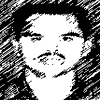If you feel that you have influenza-like illnesses (ILI) and you have other sickness, we advise you to go for an anti-viral treatment. Do not wait for the H1N1 test results. Influenza A (H1N1) or swine flu claimed two more casualties - a seven-year-old baby boy and a 74-year-old woman - bringing the death toll to 64.
As we are now entering the wet season, monitoring has to be intensified especially on small children, who easily catch cold that could be infected with H1N1.
Health Minister Datuk Seri Liow Tiong Lai.
Please Click photo to enlarge image.

Are you a Contact?
Close contact with someone with Influenza-like illness (ILI) may expose you to the Influenza A
(H1N1-2009) virus.

You may also be a contact if you are caring for someone with ILI.
The infected person is infectious 24 hours before the infected person’s symptoms appear and continues throughout the period that he/she is ill.
Exposure can take place anywhere - at school, work, and even at home.

What should you do if either you or your child is a contact?
Avoid further close contact with the person who is ill to reduce the chance of being infected.

Monitor your health and watch out for these flu-like symptoms:
• FEVER • SORE THROAT • COUGH • BODY ACHE • RUNNY NOSE • HEADACHE • TIREDNESS

Children who are contacts should refrain from playing with other children outside or inside your home as children may continue playing even when they start having flu-like symptoms and this would put other children at risk.

If you or your child belong to any of the high-risk groups below, you should be extra vigilant and monitor the health of both you and your child closely. High-risk groups are:
• Children <>What should you do if either you or your child is unwell?
If you or your child has any symptoms of ILI, wear a surgical mask and see a doctor
immediately:
a) Pregnant women, patients undergoing cancer treatment or dialysis should consult
their primary specialist.
b) All other persons should go to a Pandemic Preparedness Clinic (PPC), polyclinic or
their primary care doctor.

What additional precautions should Household contacts take?

Observe good personal hygiene. Clean your hands with soap and water (or use an alcohol-based hand rub) frequently, including after every contact with the infected person.
Use paper towels for drying hands after hand washing or have a
dedicated cloth towel for each person in the household.
If you need to communicate with the ill person, ensure that both you and the infected person wear surgical masks and remain at a distance of at least two metres from one another. Dispose used mask in a plastic bag, tie it up and throw it into a covered rubbish bin. After taking off your mask, clean your hands with soap and water (or use an alcohol-based hand rub).

Avoid having meals together with the ill person as masks would have to be removed during meals.
Maintain good ventilation at home, such as keeping windows open in toilets, rooms and the kitchen.
What else should you take note of if you are a caregiver of a person with ILI?
Have only one adult caregiver for the ill person. If you are in a high-risk group, avoid being the caregiver and make alternative arrangements.

When attending to the ill person, wear a surgical mask at all times. Clean your hands with soap and water (or use an alcohol-based hand rub) after touching the ill person, their used tissues or laundry.
Do not give aspirin to children or teenagers who have the flu. This can cause a rare but serious illness called Reye’s syndrome.
What precautions should you take for household cleaning, laundry & waste disposal?
• Tissue papers and other disposable items that have been used by the infected person should be thrown in the dustbin. Wash hands with soap and water or use an alcohol-based hand rub after disposing those items.
• Surfaces soiled with sputum, phlegm, nose discharge or vomit should be washed or wiped with 1:50 diluted household bleach (1 part of bleach to 50 parts of water) immediately. Metallic surfaces can be cleaned with 70% alcohol.
• Bed sheets, towels, eating utensils and dishes used by the infected person do not need to be washed separately, but they should not be shared without washing thoroughly first.
• Bed sheets and towels can be washed using household fabric washing powder in the
washing machine on hot setting.
• Do not carry dirty laundry by ‘hugging’ to avoid contaminating yourself.
• Eating utensils should also be washed either in a dishwasher or by hand with water and soap.
Emergency warning signs in adults

Breathlessness or chest pain.

Purple or blue discolouration of the lips

Severe and persistent vomiting

Signs of dehydration such as dizziness when standing and absence of urination

Seizures (fits)

Being less responsive than normal, drowsy or confused

Lack of tears when crying

Poor feeding

Emergency warning signs in children
All the warning signs listed above, plus:
Monitor your condition. If your symptoms worsen and you develop any of the above
emergency warning signs, call 995 immediately for an ambulance to transport you to the nearest hospital for treatment.
For more information, please call HealthLine at 1800 223 1313, visit www.moh.gov.sg or www.hpb.gov.sg














